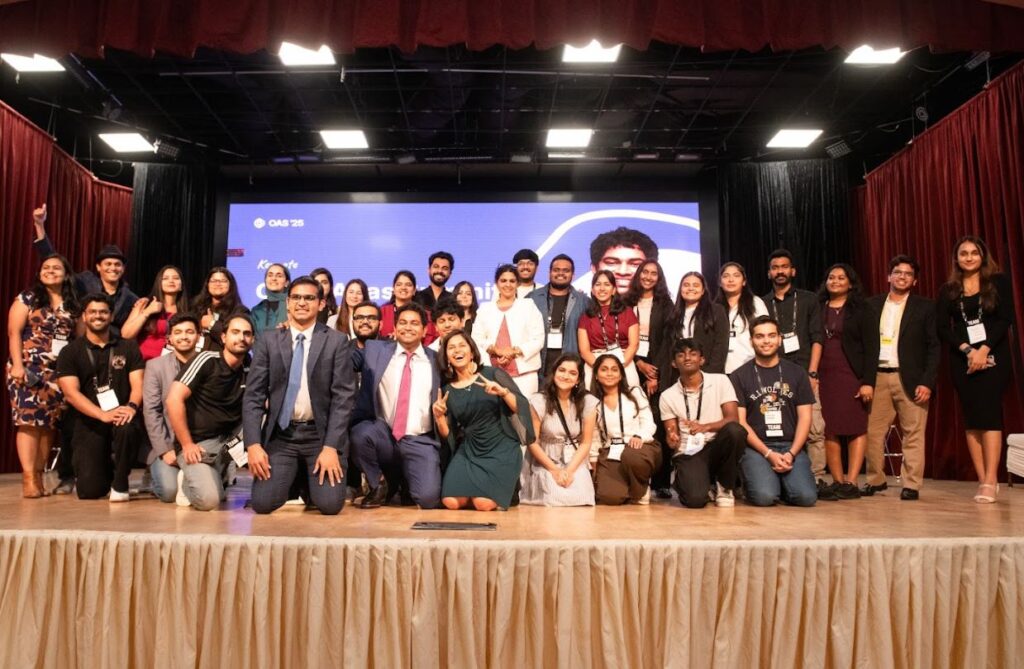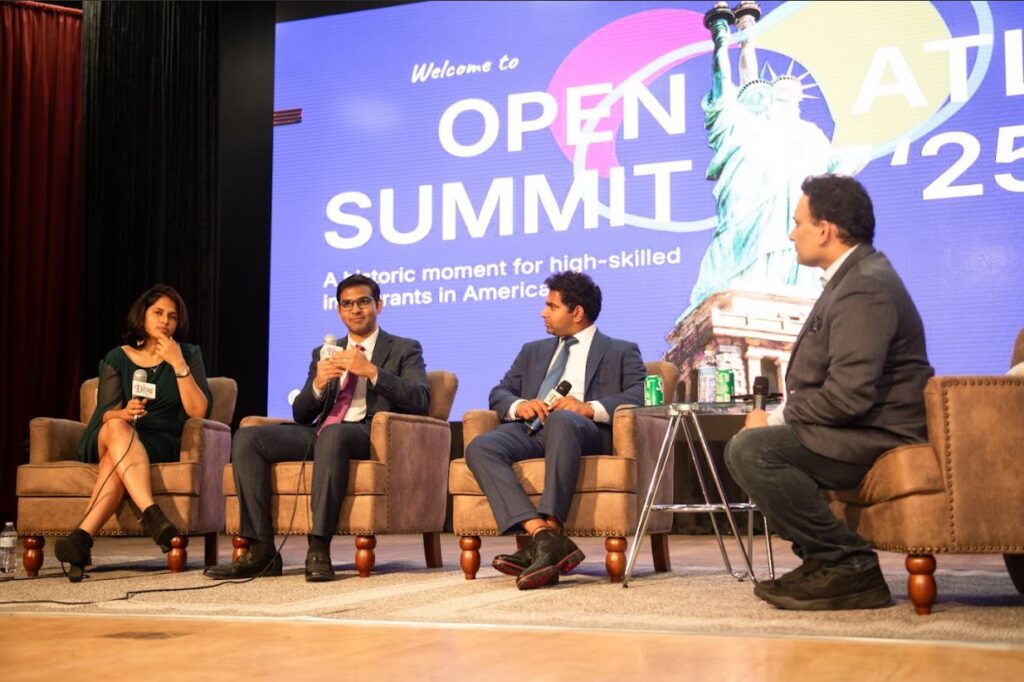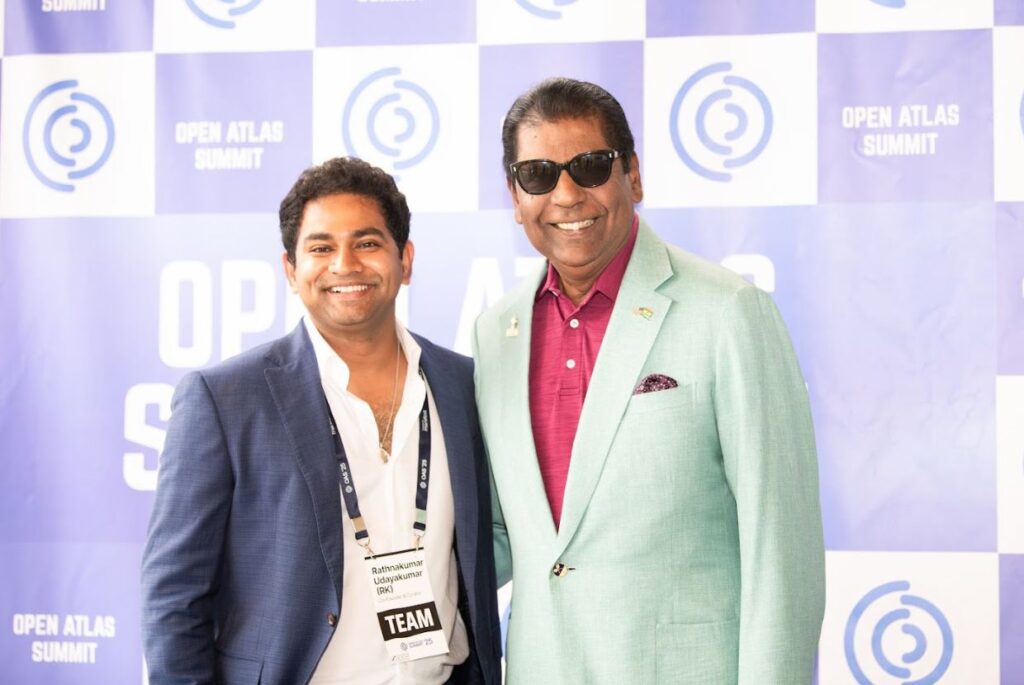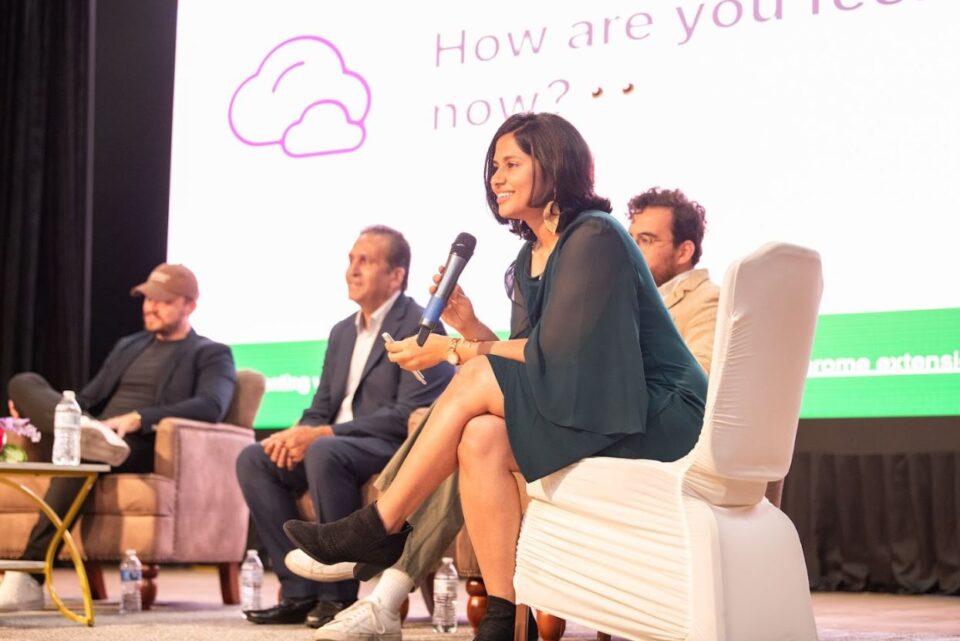NRI PULSE STAFF REPORT
San Francisco, CA, August 30, 2025: In mid-August, over 1,000 high-skilled immigrants, attorneys, entrepreneurs, and policy leaders gathered for the first-ever Open Atlas Summit, a two-day event dedicated to those navigating America’s complex immigration system. Held on August 15–16 at the India Community Centre in Milpitas, the summit was the largest gathering of its kind, featuring more than 30 visa-friendly startups and dozens of legal experts. It was co-founded by Soundarya Balasubramani, author of Unshackled, and Nikin Tharan, to provide guidance and solidarity to immigrants who often face uncertainty about their futures in the U.S.
The summit brought together a high-profile lineup, including Ajay Bhutoria, former advisor to President Biden; Vijay Amritraj, world tennis champion and humanitarian; Kirthiga Reddy, former Facebook India Managing Director; Tanay Kothari, CEO and co-founder of Wispr Flow and several startup founders who had navigated the visa maze themselves.

Immigration at a Crossroads
In the first half of 2025 alone, the U.S. immigration system has seen a series of updates and proposed rule changes: The H-1B lottery process is undergoing reform to prevent abuse and improve fairness. There’s even a new proposal to overhaul it entirely based on weighted salaries.
The F-1 student visas were revoked for thousands of international students, sometimes due to minor infractions, though they were later reversed by a judge’s order—sparking fear and confusion across campuses.
An increase in fees for most visa applications came into effect in April 2024, with H-1B petitions up by 85%, green card filings rising by 70%, and a new $600 asylum fee added to most employment-based petitions. There has also been a notable rise in RFE and denial rates for self-petitioned visas like EB-1A and NIW, leaving even highly qualified applicants in limbo.
“Attorneys are seeing a much higher incidence of denials for NIW and EB-1s than we’ve seen in the past,” said Kripa Upadhyay, a seasoned immigration attorney and one of the leading legal experts speaking at the summit. “Even applicants with multiple patents and commercialization evidence are getting rejected. For applicants, this is obviously an intensely frustrating experience—some are even considering options outside the U.S.”
While policy memos have made these pathways seem more accessible, actual outcomes have become less predictable. And enforcement—once discretionary in many cases—is becoming more rigid. “What the present administration is focused on is enforcement of laws that were previously not followed or not as stringently followed,” Kripa added. “For example, the recent spate of issuing Notices to Appear (NTAs) for individuals in the 60-day grace period after ending H-1B employment. This used to be a gray area. Now it’s under active review.”

A Platform for Collective Action
Co-founder Soundarya Balasubramani explained that the summit was designed not as a space with all the answers, but as a platform for shared questions. “How do I stay? How do I build? How do I not feel hopeless? The Open Atlas Summit is our way of saying: you don’t have to figure it out alone,” she said.
Former Biden advisor Ajay Bhutoria underscored the stakes, warning of new restrictive measures under consideration. “Proposals to strip citizenship, deport green card holders, discourage U.S. businesses from hiring H-1B workers, and heighten visa scrutiny create significant roadblocks—particularly for Indian immigrants,” he said. “This conference was vital to unite advocates for fair immigration reforms.”

Looking Ahead
The road forward remains uncertain. With more lawsuits, backlogs, and policy shifts likely in the coming year, the American immigration system is still far from predictable. But what is changing—quietly, powerfully—is how immigrants are navigating it.
“Since my tenure as an advisor to President Biden on the AANHPI Commission, where I authored policies enabling H-1B stamping in the U.S., extending H-1B grace periods to 180 days, and advocating EADs for those with approved I-140s, the political landscape has shifted toward restrictive immigration measures,” said Ajay Bhutoria, Former Advisor to President Biden, White House AANHPI Commission.
“Proposals to strip citizenship, deport green card holders, discourage U.S. businesses from hiring H-1B workers, and eliminate the H-1B dropbox renewal facility abroad, along with heightened H-1B and student visa scrutiny and potential rollbacks of work authorizations, create significant roadblocks for legal immigrants—particularly from India. This conference is vital to unite advocates for fair immigration reforms, ensuring policies support America’s economic and cultural strength through streamlined visas and protections for skilled immigrants.”
As Open Atlas Summit prepares to convene hundreds of immigrants, founders, lawyers, and policymakers, its message is clear: policy alone won’t fix the system. But people can. With the right tools, knowledge, and community—immigrants don’t just survive the system. They outgrow it.



